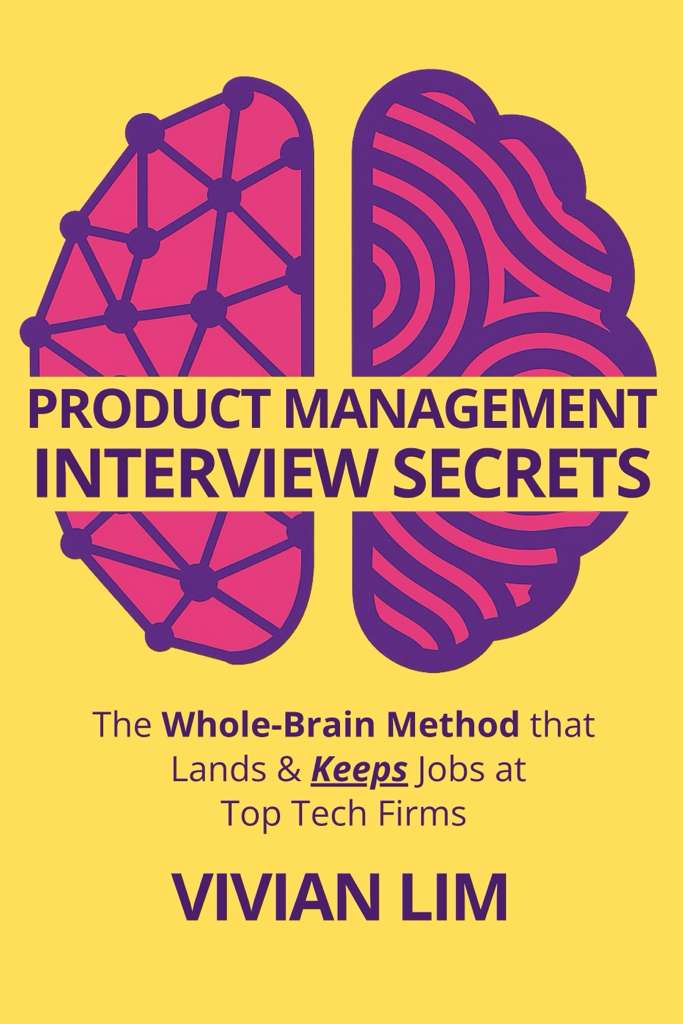
Preparing for PM interviews at Google, Meta, Amazon, or other top tech companies? Here’s the reading I recommend in my book “Product Management Interview Secrets: The Whole-Brain Method That Lands and Keeps FAANG Jobs” that actually matter—curated from 10+ years of FAANG interview coaching and personal experience landing (and keeping) product roles at elite companies.
Unlike generic “best PM books” lists, this reading list is organized by the actual skills tested in modern product interviews: strategic thinking, adaptive problem-solving, and high-performance decision-making.
Strategic Core: Adaptive Thinking & Neuroscience
These books form the foundation of the Whole-Brain methodology I teach—balancing data-driven analysis with empathetic stakeholder engagement.
“The Whole-Brain Child” by Dr. Daniel J. Siegel & Tina Payne Bryson
Why it matters for PM interviews: Teaches how the brain operates under stress (hint: exactly what happens in interviews). Understanding left-brain vs right-brain thinking helps you balance analytical frameworks with human empathy—the core of great product management.
Best for: Understanding how to stay calm under pressure, manage stakeholder emotions, build psychological safety on teams.
“Thinking, Fast and Slow” by Daniel Kahneman
Why it matters for PM interviews: Nobel Prize-winning research on decision-making biases. Every product sense and strategy question tests your ability to recognize and overcome cognitive biases.
Best for: Analytics questions, A/B test interpretation, avoiding common product pitfalls.
“Emotional Intelligence” by Daniel Goleman
Why it matters for PM interviews: Behavioral interviews are 50% of your loop at most companies. This is the definitive guide to demonstrating self-awareness, empathy, and relationship management—the core of Amazon’s Leadership Principles and Google’s “Googleyness.”
Best for: Behavioral interview prep, leadership stories, cross-functional collaboration examples.
“Tao of Jeet Kune Do” by Bruce Lee
Why it matters for PM interviews: “Absorb what is useful, discard what is useless, add what is specifically your own.” The antidote to rigid framework memorization (CIRCLES, RICE, AARRR). Teaches adaptive thinking—exactly what interviewers look for when they say “don’t just recite frameworks.”
Best for: Strategy questions, handling curveballs, demonstrating original thinking.
“Smarter Faster Better” by Charles Duhigg
Why it matters for PM interviews: Duhigg’s research on productivity and team performance directly maps to what interviewers assess in behavioral questions. The book’s deep dive into Google’s Project Aristotle (psychological safety research) gives you the language and frameworks to discuss high-performing teams—a core competency at FAANG companies.
Best for: Behavioral questions about team dynamics, conflict resolution, and productivity optimization. Essential for understanding how to demonstrate “builds psychological safety” and “drives results” in the same story.
Product & Leadership: Building & Shipping
“Just Evil Enough” by Emily Ross and Alistair Croll
Why it matters for PM interviews: Real-world product strategy from someone who’s shipped at scale. Helps you tell authentic “Tell me about a time…” stories instead of generic textbook examples.
Best for: Behavioral interviews, understanding product tradeoffs, ethical decision-making.
“Hooked” by Nir Eyal
Why it matters for PM interviews: The psychology of habit-forming products. Frequently referenced in product sense questions about engagement, retention, and growth loops.
Best for: Product design questions, growth strategy, understanding user psychology.
“This Is Marketing” by Seth Godin
Why it matters for PM interviews: Great PMs understand positioning, messaging, and go-to-market—not just feature specs. This book teaches how to think about product-market fit from a human perspective.
Best for: Product launch questions, positioning discussions, differentiation strategy.
“Building a StoryBrand 2.0” by Donald Miller
Why it matters for PM interviews: Teaches clear communication and narrative structure. Critical for presenting your product ideas, roadmap rationale, and influencing without authority.
Best for: Case presentations, stakeholder communication, product vision articulation.
How to Use This Reading List
Don’t read everything. Pick 2-3 books based on your weak spots:
• Struggling with behavioral interviews? → Emotional Intelligence
• Can’t think on your feet? → Thinking, Fast and Slow + Tao of Jeet Kune Do
• Product sense feels robotic? → Hooked + The Whole-Brain Child
• Strategy questions are vague? → Tao of Jeet Kune Do + This Is Marketing
Want the full framework that connects all these books?
I’ve synthesized these concepts into the Whole-Brain methodology for PM interviews—the adaptive thinking approach I teach in my book Product Management Interview Secrets and use in 1-on-1 coaching at Kalena Advisors.
The book includes:
• 50+ worked interview examples (estimation, product sense, analytics, strategy, behavioral)
• The complete Whole-Brain framework (6 core principles)
• Real interview dialogue showing how to apply these books’ concepts under pressure
• The “Landing the Plane” behavioral interview structure (50K→0K altitude)
About This List
I’m Vivian Lim, founder of Kalena Advisors. I’ve coached thousands of students and career switchers to land PM roles at Google, Meta, Amazon, Stripe, and other top tech companies.
This reading list is what I actually recommend to clients—not a generic “best PM books” compilation. Every book here has directly influenced my coaching methodology or helped my clients break through interview plateaus.
Learn more about 1-on-1 Coaching Services >
Related Product Manager Interview Resources
Are you sure you’re covered on all things Product Management Interview-related? Check out these free resources:
- Product Management Interview Secrets: The Whole-Brain Method That Lands and Keeps FAANG Jobs
- 300+ PM Interview Questions Library
- Free Behavioral Interview Template
- Free Resume Template for Product Managers
- Super-Memorize Your Interview Prep (Cognitive Enhancement Guide)
Last updated: November 2025